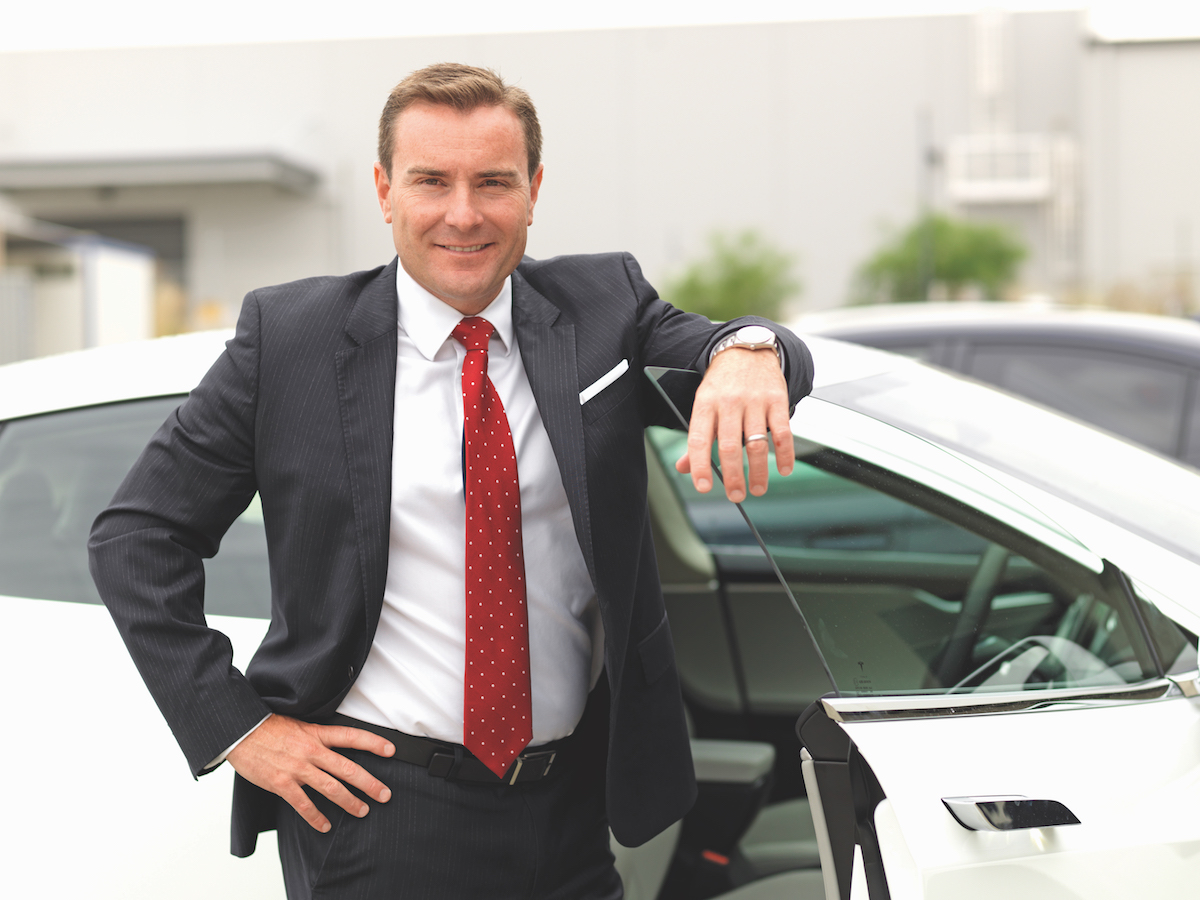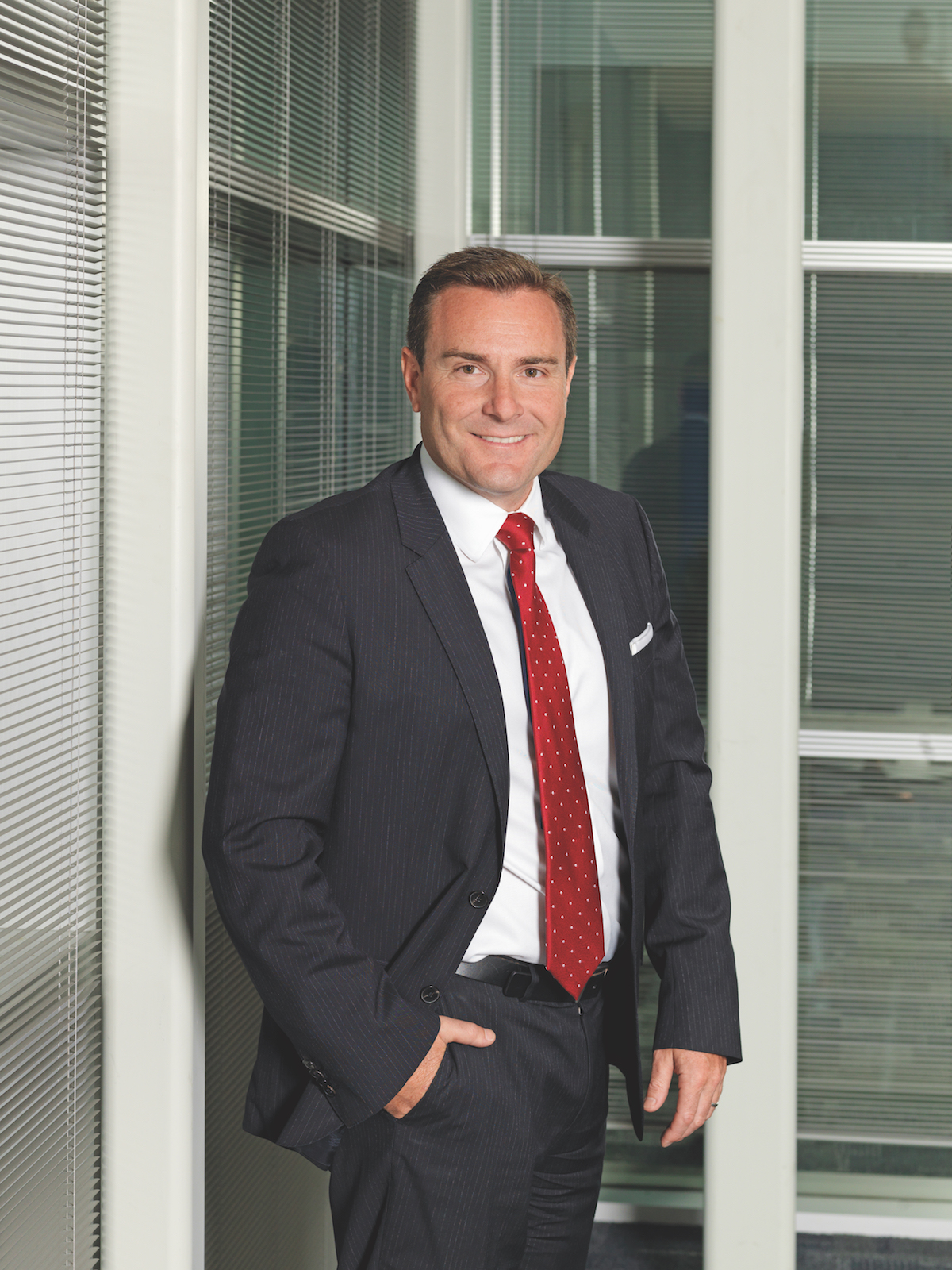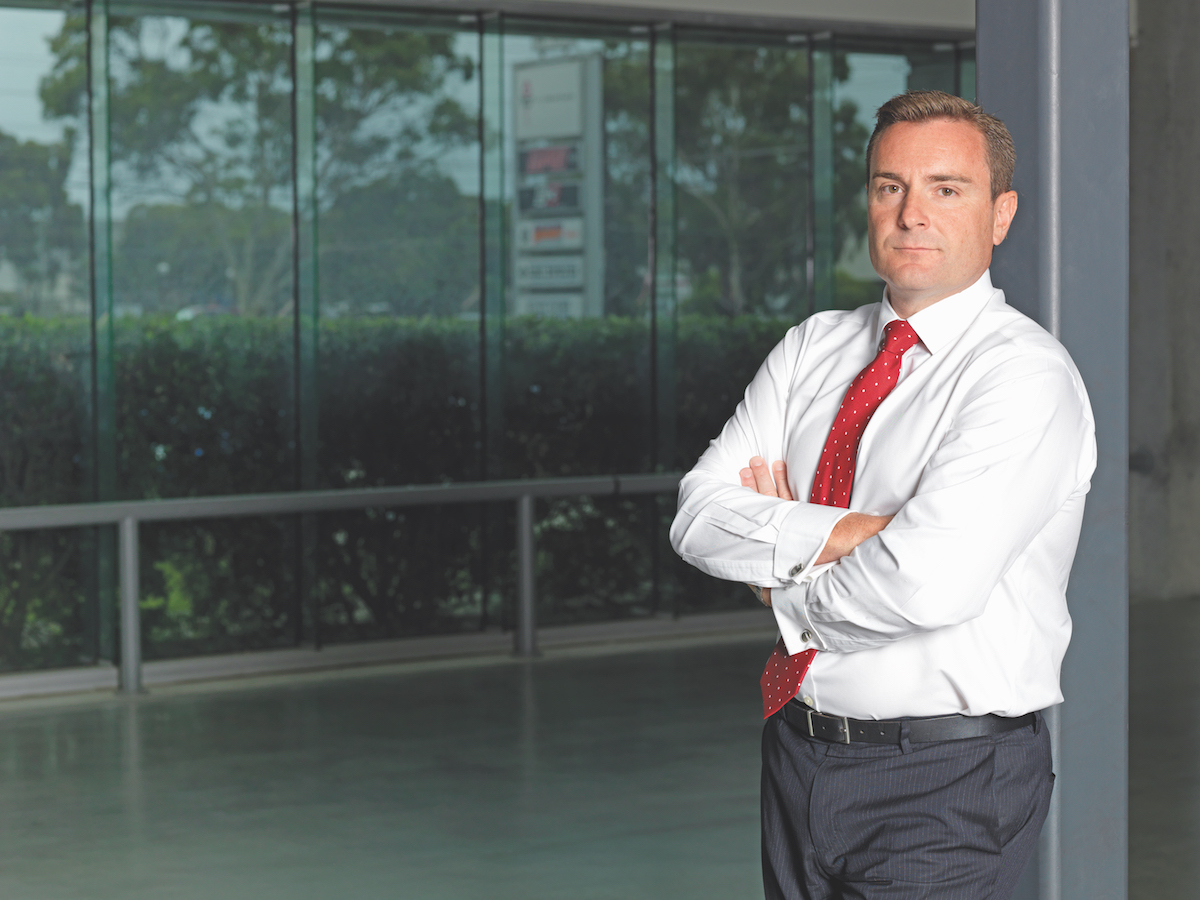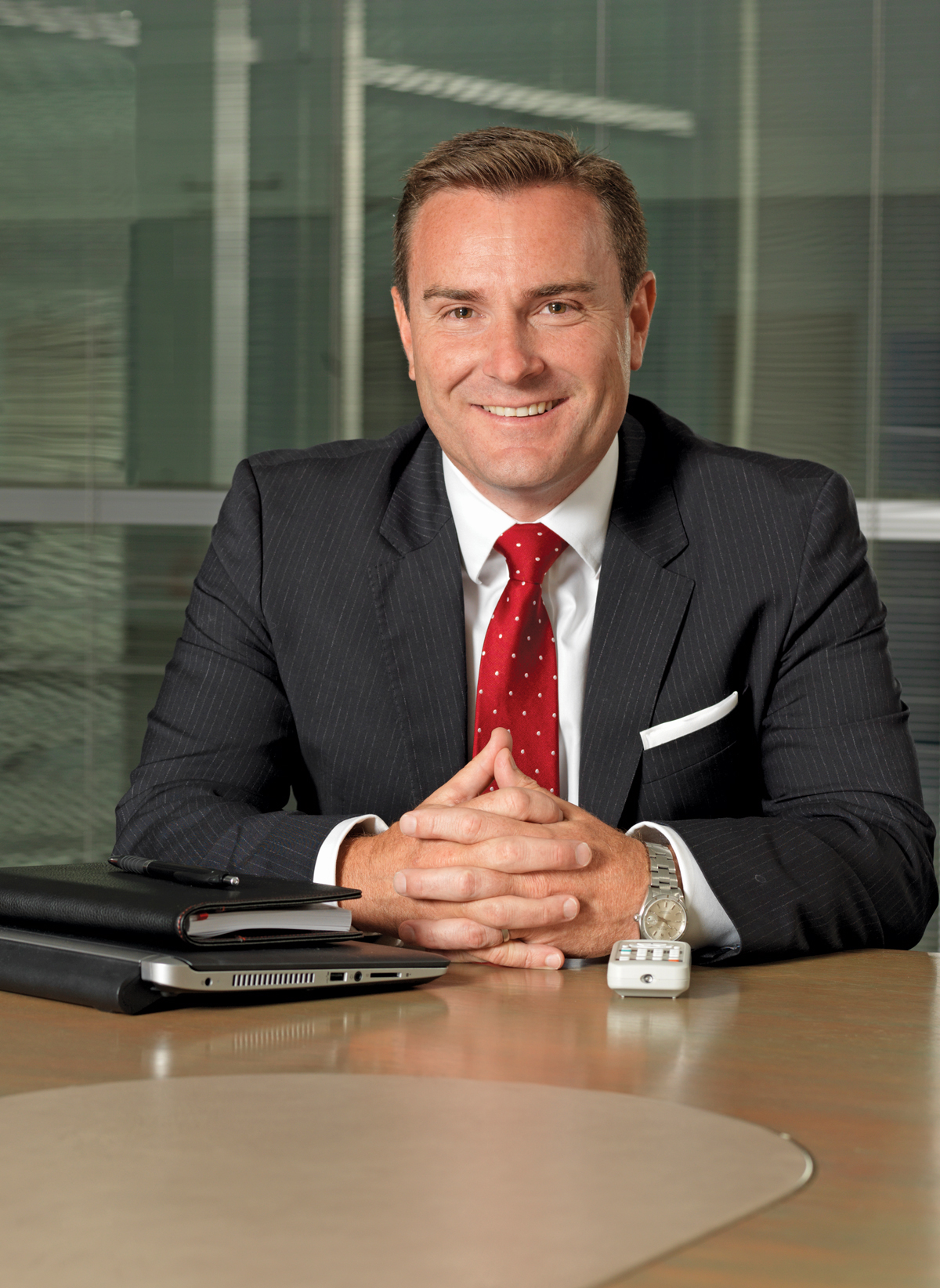Leasing out fleets of cars or trucks was never a particularly technical affair. It was just a matter of providing the right number of vehicles to the correct address on the requested day and at the agreed time. Straightforward and simple, surely? Not so these days. Now it’s all data analysis and state-of-the-art technology, with Custom Fleet — part of Element Fleet Management, which has a global alliance with Arval — not only providing millions of trucks and cars to thousands of companies globally, but going along for each and every ride. Literally.
From the moment a fleet is delivered to a client, Custom Fleet uses data analysis to monitor the use of the car, right down to the finest detail. It’s a bit like having a backseat driver, albeit a more silent one, recording every driving habit, from good to bad: where you stopped, how fast you drove, and even which red light you ran.
It’s these state-of-the-art electronics that have transformed Custom Fleet from your average car-leasing company to a sophisticated data and analytics company. The job no longer ends when the keys to the cars are handed over. In fact, it’s when the job begins, and it’s where the data scientists come in.
Custom Fleet CEO Aaron Baxter is the first to admit he isn’t a scientist. When he first took up the mantle as CEO, it was more of a practical role until it evolved into the more complicated responsibility of ensuring databases monitoring safety, driver behaviour, routing, car pooling and fuel efficiency in each vehicle in each fleet are up to date.

“I never thought I would be hiring a bunch of data scientists. Historically, technology hasn’t played a huge role in car leasing … But there’s a big global phenomenon going on in the industry today.”
“I never thought I would be hiring a bunch of data scientists,” Aaron laughs. “Historically, technology hasn’t played a huge role in car leasing. When you look at the people who have worked in and typically grown up in the industry, technology was never high on the list of requirements. But there’s a big global phenomenon going on in the industry today, and building technology is right at the centre of it.
“We are trusted to provide data and insight to our customers that ensure their fleets are run efficiently, productively and safely. Unless you have the technology to deliver on that, you are going to be left behind,” Aaron explains.
One of Custom Fleet’s key technology partners is CSC, which delivers IT services and solutions to lead the company through its digital transformation. Another is Primar, Australia’s leading Occupational Road Risk and Accident Management and Roadside Assistance service provider. Acutely aware of the duty of care to employees on the road and the confronting statistic that human error is a factor in more than 90% of road accidents, Custom Fleet has access to Primar’s Virtual Risk Manager (VRM), a series of modules focusing on specific areas of driver training, which has reduced the number of accidents in some fleets by more than half.
And safety, Aaron insists, is the main motivation behind corporates observing their employees driving company cars so diligently. “These telematics are a very powerful tool informing companies about fuel efficiency, productivity, driver behaviour and real-time tracking. But, first and foremost, the majority of the corporates have safety as the main reason for using a telematics solution,” says Aaron.
“When female drivers go into isolated regional areas, for example, we can plan and manage their routes with safety in mind, and track them in real time so we know where they are. We also have maintenance alerts allowing us to let the client know before something goes wrong with the car, or a trigger can be sent to the boss to let them know there is a safety risk around driver behaviour, to avoid potential fines or accidents.”
Based in Melbourne, Custom Fleet has leased tool-of-trade vehicles for nearly 40 years to a range of government departments and corporate business ranging from multinationals to SMEs. With a global reach of 50 countries, it supports around 2,400 customers in metropolitan and regional Australia, and is the clear market leader in New Zealand, where it enjoys a 27-per-cent share and the responsibility of outfitting the police.

“We don’t align ourselves with any particular manufacturers. We cover every brand or model on the market and select a car to fit the requirement of the customer.”
“We don’t align ourselves with any particular manufacturers,” Aaron says. “We cover every brand or model on the market and select a car to fit the requirement of the customer. A client like the New Zealand police will obviously have different requirements from a multinational where prestige may be more the emphasis. The needs always vary, and we have a whole team focused on tailoring a solution which will also be flexible enough to change or grow with the business.”
Aaron has been CEO of Custom Fleet for nearly 2 years, although his history with the company spans more than a decade. Previously working with GE Capital, responsible for its strategy, operations and profits, Aaron led the divesture of Custom Fleet, GE’s largest and most prized asset, to Element Financial, a global leader in fleet management. During his negotiations in 2015, he found himself becoming part of the deal.
“It felt like a really nice fit for me,” Aaron says. “Element wanted me to run the business, so I transitioned across as CEO. I had the unique opportunity to choose my own executive team, and I made sure I secured the best of the best. My experience of being heavily involved in acquisitions and integrations, combined with having an A-grade leadership team, put us all in a good place to catapult the company forward.
“I am enjoying a really great mix, the best of both worlds,” Aaron adds. “I had come from GE, which is a large multinational conglomerate with sophisticated processes and operating rhythms and huge underlying integrity, all of which was in my DNA from a leadership perspective. Then I go to Element, the largest leasing company in the world, focusing wholly and solely on fleet management. It’s a very nimble company, supportive about independence, trusting you to do the job, and a willingness to invest in the region. And being Canadian-listed, there are very strong similarities with our market, so the business is well-aligned culturally as well.”

Keeping the Custom Fleet employees settled and assured during the selling process was buoyed by GE’s quick action after it announced the decision to divest. Aaron, already a familiar face among many of the Custom Fleet employees, provided a comforting presence. And, well equipped with lessons learned from the excellent mentoring he’d received at GE, he handled the move with transparency and communication. Then there was the added bonus when everything old became new again.
“We moved back to Custom Fleet’s original headquarters in Preston,” Aaron says. “Staff who had been with the company for 20 years or more were delighted to ‘come home’ when we moved right back into the original building. It was a site that GE had always kept and was the right size to bring everyone across. For the long-term staff who knew it well, they were reverting to something they knew, and for the rest, it was great to run the company under the one roof. It was an excellent start for all of us and a good base to develop a culture and a community.”
As much as the building provided comfort and nostalgia to many Custom Fleet employees, the shift back to Preston and the move to Element were also reassuring for Custom Fleet’s existing customers. Once again, using his same tactic of openness and transparency, Aaron eased the company’s client base into a seamless transition. “We have deep relationships fostered with our customers, about 55% of them having been with the company for more than a decade,” Aaron says. “They saw the move to Element as a positive one, relishing the fact that Element was focused on fleet. Many also remembered our days at Preston and were delighted to see us back there.
“I brought all the global executives over to meet with our customers, and during the first 12 months they probably met with about 300 of them. It was important for them to understand our ongoing commitment to Australia and New Zealand and, of course, help them grow with our advances in technology.”
Custom Fleet is pouring a cool $55 million into innovation, particularly targeting its receivables system, the new fleet-management system, and online portals. It’s a strategy designed to ensure the company will continue to offer its clients added value in an industry where ironically its core product is required less and less.
The internet has reduced the need for a commute by car, with cheaper airfares also providing a faster and more efficient service. Companies are downsizing, thousands of jobs have been terminated, and cities are forcing cars out of their precincts, compensating with huge public transport hubs to connect drivers with trains, ferries and buses. The concept of global mobility is also transitioning drivers into ride-sharing or carpooling, and the need for individuals to have a car is diminishing.
Aaron concedes he’s seen the car-leasing market shrink among certain corporates, particularly in the middle markets, but says that while technology may be driving cars off the road, it is also providing the solution for Custom Fleet to keep ahead of its competitors.

“There’s no doubt that the concept of just one individual owning one car is starting to fade, so we need to accommodate all of these global megatrends.”
“There’s no doubt that the concept of just one individual owning one car is starting to fade, so we need to accommodate all of these global megatrends,” Aaron says. “As well as our telematics and safety systems, we are integrating a carpool solution. Rather than assigning a vehicle to each individual within a company, we’re simply now sharing a pool of vehicles for a number of employees. We have a portal that gives us the ability to manage the usage between multiple employees, and there are several options to facilitate this, an obvious one being through security passes.
The lack of available parking in major cities today is another variable affecting fleets. Carpooling will solve this problem as well, while reducing the need for pricey car parking. “So while some of our fleets will shrink, we will continue to provide solutions to help our customers be mobile. This, in turn, creates a bigger pool for us because companies can’t enable these solutions internally. The level of investment is just too great. So we are actually getting more customers because of the extraordinary data we offer.”
“One of the reasons I love my job as CEO is because I can play an active role in mentoring the next generation of leaders.”
Aaron reveals that Custom Fleet’s steady relationships with reliable suppliers are crucial to the company’s success. His very hands-on executive team is responsible for key strategic partners who collate a detailed operating rhythm meeting 4 times a year.
“I think our ongoing relationships are beyond the occasional game of golf now,” he laughs. “The industry is a lot more mature and transparent these days, and we spend a lot of time up front defining what success looks like with our key partners and suppliers. The Custom Fleet brand is very strong, and we have supplier relationships that go back decades.”
Fleetcor is used for payment at more than 7,000 fuel outlets and 6,000 car dealerships and repair centres across Australia for fuel, oil, maintenance and repairs, while it’s up to Pickles Auction to offload the cars at the end of their journey. Using its 50 years of experience and multiple options including retail and fixed-price channels, online and traditional auctions, consignment, wholesale and dealer tenders and private/closed bids, Pickles sells the cars on.
Despite the millions being poured into technology, and the remarkable advances being made, Custom Fleet still relies heavily on its most important asset, its people. Aaron is a firm believer in steady mentoring, attributing his own success to his mother instilling strong values in him and extraordinary mentors guiding him through his career at GE. “One of the reasons I love my job as CEO is because I can play an active role in mentoring the next generation of leaders,” Aaron explains. “I have been very lucky in my career to have had some extraordinary mentors on personal and professional levels. My mother was a huge influence, passing on an incredibly hard work ethic and solid values, while a corporate coach at GE helped me understand essential trade-offs, such as balancing life and protecting your personal life when you start to take on bigger and more corporate roles.”
Reverse mentoring is a concept Aaron is pushing throughout the company. While valuing long-term employees with experience in leadership and problem-solving, he understands the next generation coming through is vital to the company’s technical evolution.
“As I said, I never thought I’d be hiring kids out of university to work in a fleet-leasing company, but they are extraordinary around technology and data. We like to grab the next generation out of university because we can learn from them — they mentor us while they are being mentored in leadership. They teach us; we teach them.”




Aaron Baxter I know will be an extraordinary CEO bringing positive people change even with technology strongly involved. Aaron always strongly believes in mentoring and is one of the best and honest mentors I ever had during my time at GE. The culture at Custom Fleet will benefit brilliantly, giving in return better productivity and morales.
Congratulations Aaron….. how lucky is this company and their next generation of people and culture.
As the article highlights it is a time of transformation for all of the fleet industry.
One can buy good tech but good culture needs to be nurtured and this is an issue at Custom Fleet, especially I’d highlight the lack of diversity in the leadership team as a barrier.